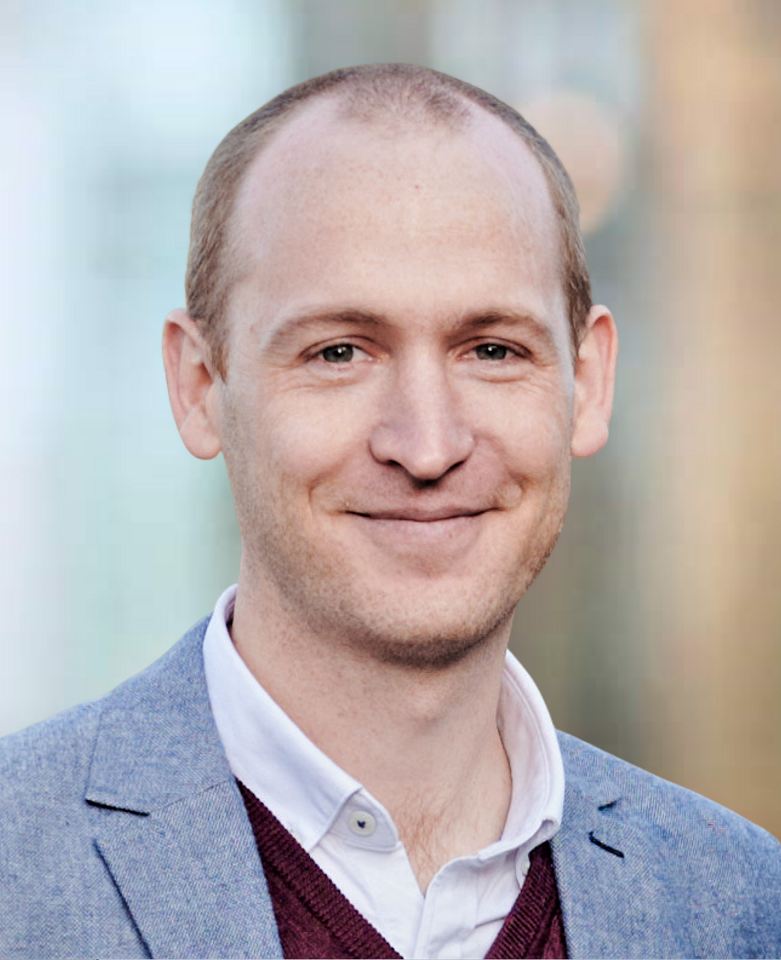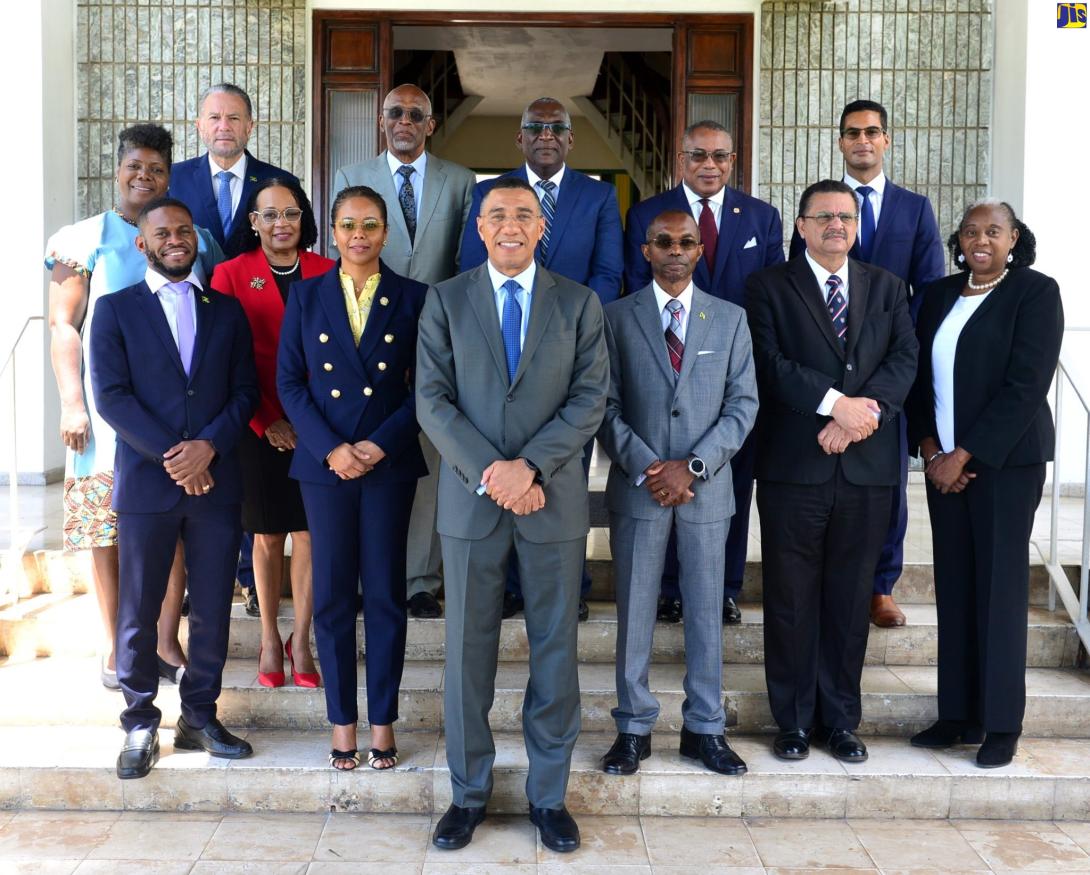
Jamaica's Constitutional Reform: Interview with Richard Albert
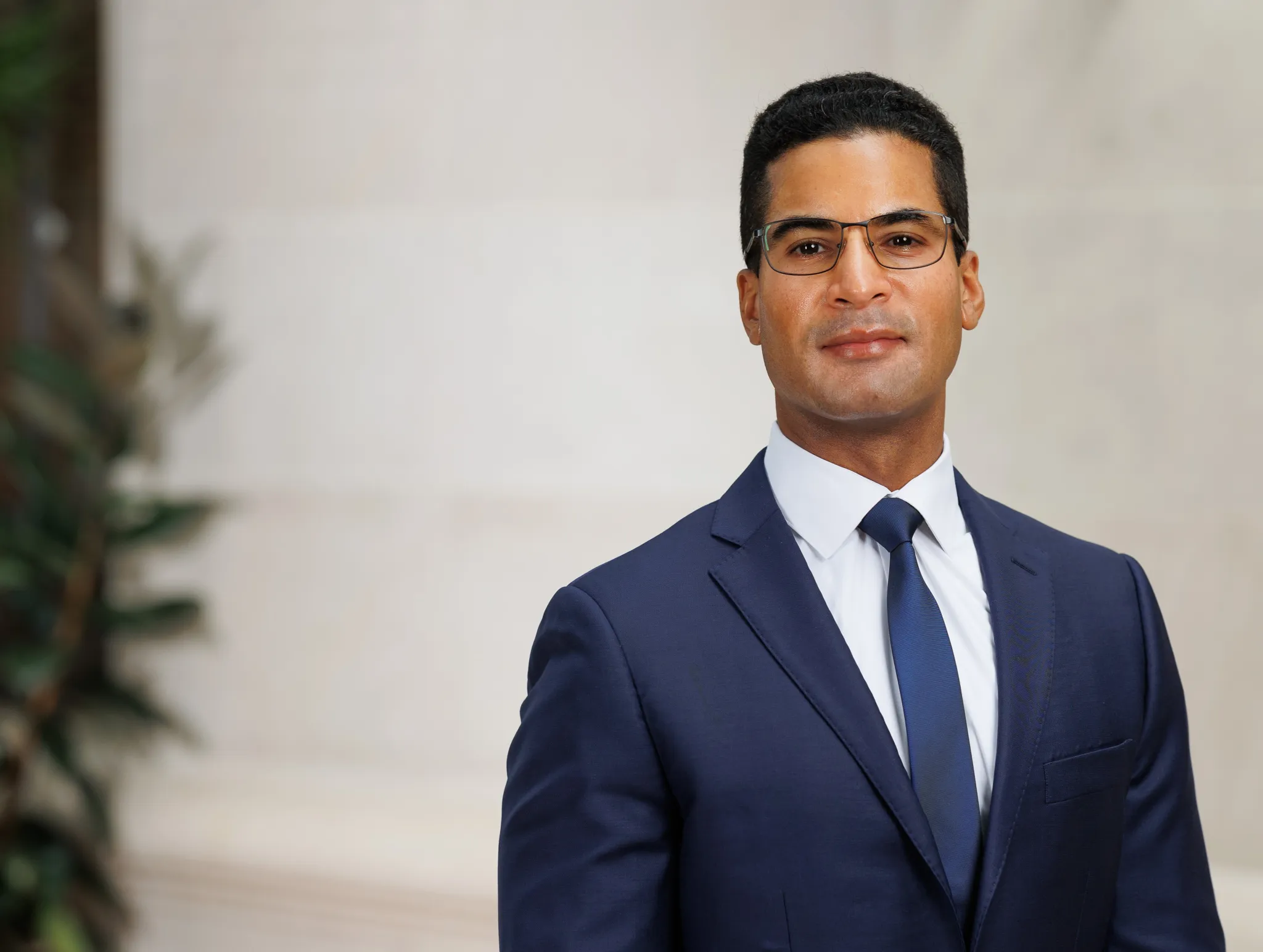
Disclaimer: Opinions expressed in this commentary are those of the authors and do not necessarily represent the institutional position of International IDEA, its Board of Advisers or its Council of Member States.
After more than 60 years under its independence constitution, Jamaica is seeking to move forward with an ambitious constitutional reform agenda. Much of the focus has been on enhancing the distinctively Jamaican character of the constitution through changes such as severing one of the remaining ties to the former colonial power (the United Kingdom) through the establishment of a republic and forbidding dual citizenship for members of parliament. Jamaica’s process is part of a larger movement for constitutional reform across the Commonwealth Caribbean.
To learn more about how this constitutional reform process has developed and what it tells us about democracy in Jamaica, we interviewed one of the members of the Constitutional Reform Committee, Professor Richard Albert. In addition to serving as one of the 15 members of the Committee, he is the William Stamps Farish Professor in Law, Professor of Government, and Director of Constitutional Studies at the University of Texas at Austin. A citizen of Canada, Professor Albert is a world-renowned expert in comparative constitutional studies and is particularly known for his work on processes of constitutional change. He has published over 30 books on constitutionalism and democracy, including Constitutional Amendments: Making, Breaking, and Changing Constitutions (Oxford University Press 2019).
Professor Albert spoke with IDEA’s Senior Adviser for Democracy Assessment, Alexander Hudson, on 13 September 2024.
What is the impetus for having a constitutional reform process at this time in particular in Jamaica?
The main impetus was that Prime Minister Andrew Holness and the government of Jamaica wanted to finally cross the finish line in the long race from constitutional monarchy to republic. The current government of Jamaica campaigned on this. To his credit, the Prime Minister fulfilled a pledge to create a new ministry to shepherd the process from start to finish – the Ministry of Legal and Constitutional Affairs, led by Marlene Malahoo Forte (who is also the chair of the Constitutional Reform Committee). Things happening in the region and the world may have had some influence, too. For example, in and around that time, Barbados was mounting a process to revise its own constitutional arrangements, culminating in replacing its foreign head of state with a domestic president. But, to be sure, the ongoing constitutional reform process in Jamaica has deep roots in the country.

What has it been like for you personally, as a scholar of comparative constitutions, to now be involved in this drafting process?
Being a member of this constitutional reform committee has confirmed what I know to be true: that the process of making a constitution is, of course, a legal process, but it's more so a political process. It's helpful to have people around the table who know something about the legal machinery of constitution making and of constitutional reform, but that alone can't produce a successful outcome. You need people who are rooted in the local politics, who command the confidence of different constituencies around the country. Everyone on the committee has their own role. There are members representing the government and others the opposition. There are also persons representing various dimensions of Jamaican society, from faith leaders to civil society representatives to academic experts and beyond. It's really quite a thoughtful and diverse group. Everyone is united in the view that Jamaica should blaze its own path, independent of the United Kingdom and the monarchy.
What is it like to be like a foreigner at the heart of such a process that touches on fundamental aspects of Jamaica's political identity?
When the Prime Minister announced the composition of the committee at our first public meeting in March 2023, I emphasized in my opening comments that I would never use the word ‘should.’ That pledge serves two purposes for me. One, it assures my fellow members on the committee (and also those who are interested in the process beyond the committee) that I see my role as helping Jamaicans forge their own way toward their shared future, drawing from my knowledge and experience in constitutional design, with no interest at heart but their own.
The second purpose is really to check myself. My pledge to never use the word ‘should’ is a constant reminder that I am not of the country; I am not Jamaican. But I believe very deeply in the mission that Jamaicans have given themselves. So much so that I wish my own country had the courage to do what Jamaica is doing. I wish Canadian leaders had the political will to mount a process to detach my home country from the United Kingdom, where today, just like in Jamaica, the head of state is King Charles.
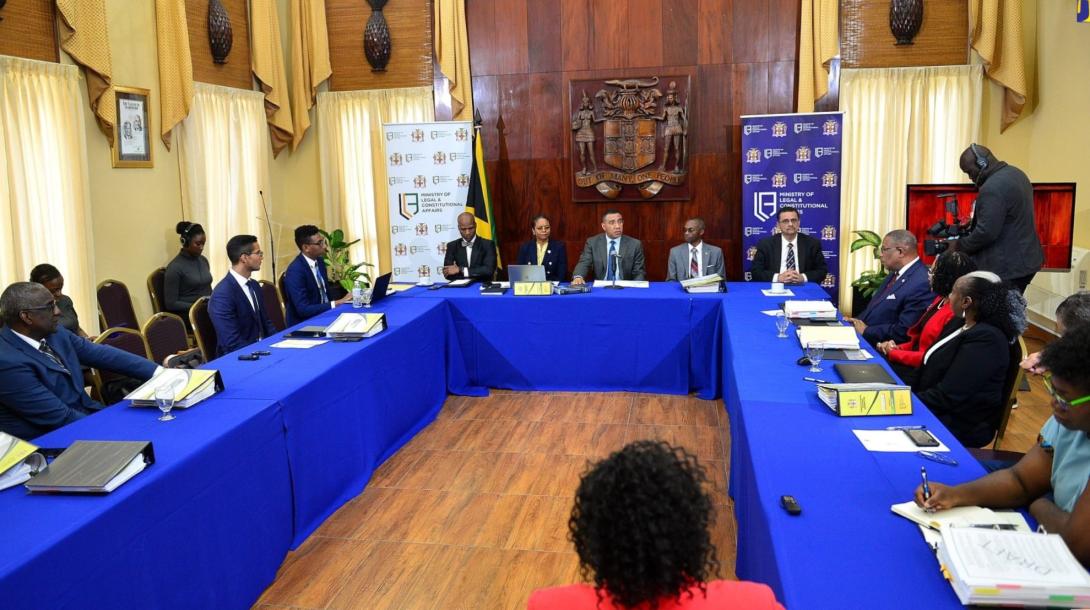
What has the Jamaican experience with public consultations been like? What was it like to be part of this fundamental exercise of democracy as the people express the things that they want the constitution to say?
From the beginning, the committee has been fully invested in inviting input from those who'll be directly impacted by the proposed constitutional reforms: Jamaicans themselves. I've been impressed at the efforts made both by the committee and by the Secretariat that supports its work to create opportunities for people and organizations to make submissions – sometimes directly in person, sometimes electronically, over email, and also in the more interactive forums that exist on social media.
The committee has hosted groups and individuals in person to hear presentations about their own vision for the constitutional reform process. And more than that, it's been inspirational to gather together in public forums in Kingston and around the entire country, where members of the committee have gone to meet Jamaicans where they reside, to make it easy for them to give their views in large town halls and small-group discussions. My hope for our public consultations was that, if we built it, the people would come, and indeed, they have.
The committee published its report in May 2024 [about five months before our conversation]. As far as you've been part of it, how has the public response to the report been?
It has generated tremendous interest in media of all kinds – print, television, social media – and it has also created opportunities for the public to share their views in a more targeted way. Before the report was released, people expressed their views about the constitution as a whole, but now they can provide their views on the specific matters discussed in the report. In this way, the report has served as a useful prompt both to catalyse and to concentrate public input around the subjects under review in phase one. The entire process is expected to unfold over three separate phases.
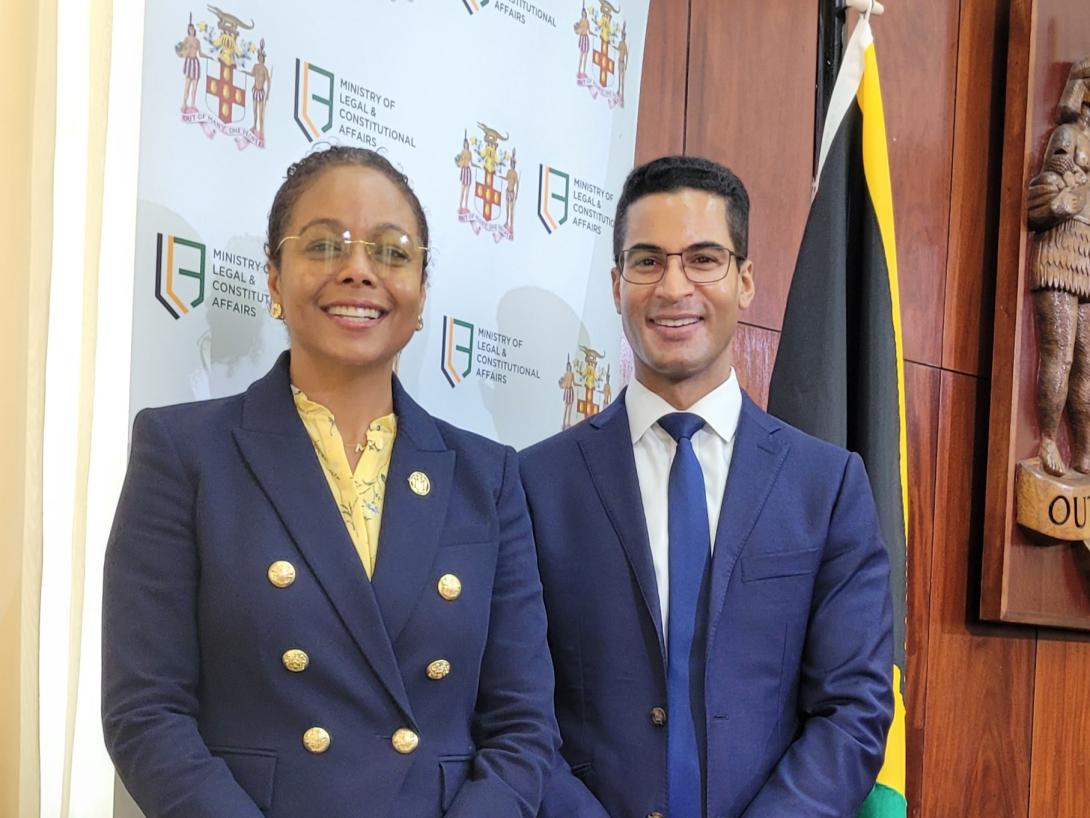
This phased approach to amendment in Jamaica (relating to the varying thresholds to approve amendments) is notable. What do you think about the choice to separate the issues that must pass a referendum from those that do not have that standard? Is there any reason to fear that the momentum towards reform will be lost if at the first point of approval things are contentious or drawn out?
The three-phase approach the government of Jamaica has designed is inspired and innovative, and I think it's also going to help lead to success. In the first phase, all matters requiring recourse to a referendum are grouped together. My sense is that the phased approach was designed in this way because there's broad agreement across the country on those matters in phase one -- most notably creating the Republic of Jamaica. Dealing first with these matters minimizes the risk of a stalled process and should build confidence among Jamaican voters and political leaders alike that constitutional reform is possible, even if this will be the first time a referendum is held under this constitution [enacted in 1962].
No matter what happens in this constitutional reform process in Jamaica, the three-phase process could augur a new model of constitution making, not just for the region, but for the world, precisely because it is a constitution making process that reflects the core values of the rule of law: orderliness, transparency, predictability, and notice. That's an effective way to start a constitution making process, whether it's to write a new constitution or to amend an existing one.
Do you have any broader thoughts about how Jamaica might inspire other countries in the Caribbean or in the Commonwealth, or even further afield?
We are in an era of decolonial constitutionalism. The protagonists are constitutional reformers, domestic high court judges, as well as supranational and subnational organizations, each of these acting separately or jointly to advance the decolonial project. We see it quite clearly in the Caribbean, namely in Barbados, Belize, Guyana, St Lucia, and of course Jamaica. But it extends well beyond the Caribbean to every region of the world. Decolonial constitutionalism is the use of legal, legitimate, and non-violent means to assert sovereignty, to secure rights, or to achieve recognition for a people, nation, or state that is legally or politically subordinate to domestic or foreign actors. The creation of the Republic of Jamaica will be a triumph of decolonial constitutionalism.
Jamaica is a leader in the region. Its example can inspire other countries in Caribbean and the world. In launching its constitutional reform project, Jamaica is taking a big leap of faith. Success will depend on political mobilization and moral suasion. It will not be easy to cobble together two thirds super majorities in both houses of parliament, and then to win a referendum. It takes a lot of political courage even to attempt this feat. I'm so pleased that the government of Jamaica has chosen to do this for its people, and I hope that it will inspire other countries to follow in its footsteps, including my own, Canada.
